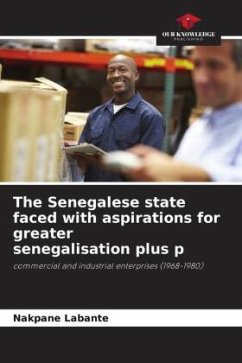Until 1968, the Senegalese government had not really developed a specific economic programme for local businessmen. Some of them, grouped within the UNIGES, did not let themselves be pushed around and, in the wake of the events of May 1968, began to express their desire to integrate the economic circuits. Following these demands, the public authorities set in motion a series of measures intended to encourage their integration into the country's economy. The creation of incentive and financing structures to support national promoters, such as SONEPI and SONAGA, the involvement of banking and financial institutions in the financing of Senegalese enterprises and the law of 12 June 1972 on the encouragement of small and medium-sized national enterprises are, among other things, responses to the GES platform of demands, even if they did not lead to the "senegalization" of the economy.








